 by Karl H. Kazaks
by Karl H. Kazaks
BURNT CHIMNEY, VA — Homestead Creamery has begun a plant expansion which will permit additional milk processing as well allow the production of yogurt and cheese. About 6,000 square feet will be added to the existing facility. That additional space will be used to expand production, to develop efficiencies for current practices — such as adding a larger bottle washer and installing a mechanized crate washer — and to permit more cold storage. The project will take about three years.
Homestead Creamery has grown significantly since its inception in 2001. A partnership between dairymen Donnie Montgomery and David Bower (as well as their family members and a few other shareholders), Homestead Creamery has already achieved its initial two goals: to utilize the milk produced by the founders’ dairies as well as to have a vibrant farm store.
At present the creamery bottles between 120,000 and 145,000 pounds of milk per week.
Last year, the Homestead Creamery Farm Market underwent a renovation, doubling in size. The store offers an abundance of local and Virginia products, including peanuts, maple syrup, apple butter, baked goods, meat, cheese, eggs, candy, and jarred goods like salsa, jams, and jellies. The store of course also offers Homestead Creamery products — milk (including chocolate, strawberry, and orange cream flavored milk), butter, buttermilk, cream, eggnog in season, lemonade, and a wide range of homemade style ice cream.
The ice cream — which the creamery bills as ‘The Way Ice Cream Should Taste,’ a modification of the slogan it uses for its glass-bottled milk, ‘The Way Milk Should Taste’ — is particularly favored for its rich, creamy taste, thanks in part due to 17 (or more) percent butterfat content.
As part of its expansion, Homestead Creamery received the first-ever grant given from the Virginia Governor’s Agriculture and Forestry Industries Development (AFID) Fund. The fund, created in 2012, was part of Governor McDonnell’s plan for jobs creation and economic development. Homestead Creamery expects to hire another 20 employees once its expansion is complete, in addition to its 25 full time and 10 part time employees today.
Homestead Creamery upgraded from an in-line bottle filler to an 18-valve rotary filler prior to receiving the grant last December. “It may be oversized for us right now but will allow for future growth,” said Homestead Creamery’s President Donnie Montgomery.
The creamery has also updated its pasteurizing capacity. The capacity of the original pasteurizer was 250 gallons per hour. The upgraded pasteurizer can handle 600 gallons per hour and by adding extra plates can be increased to 1500 gallons per hour.
The plant does have new milk tanks on its production floor — three 600 gallon tanks and a 2100 gallon tank. In addition, it recently installed a 10,000 gallon silo for raw milk storage to replace the 3,000 gallon farm tank it has been using. The silo is situated on a three-foot thick concrete pad, which was designed and sited to accommodate a future large silo sometime down the road, should demand require.
When Homestead Creamery opened its doors in January of 2001, its first sales were from its original farm store (a space since integrated into the production facility). Montgomery and Bower were looking to diversify beyond selling fluid milk to the wholesale market and direct market to consumers, to help preserve the family farms for future generations. Soon they were selling to local convenience stores. By fall they were in Kroger.
One of the big decisions that Homestead Creamery made in the beginning was to use glass bottles for packaging. Glass bottles are “more expensive and harder to handle,” Montgomery said, but their advantages fit the vision for Homestead Creamery: bottles make an attractive package, are recyclable, are a great insulator to keep milk cold, and the taste is better from the glass.
At the start, Homestead Creamery was making yogurt, cheese, and dips. Before long, though, they decided to jettison those products to focus on milk, butter, and ice cream. Getting back to yogurt and cheese once the plant expansion is complete will be a welcome return to roots for Homestead Creamery. “We always wanted to get back into cheese,” said Montgomery. “We just needed space to do that.”
Today, wholesale sales to grocery stores are a significant part of Homestead Creamery’s business. Homestead Creamery products are in some 90 Kroger stores in Virginia, West Virginia, North Carolina and Tennessee. They are also in a number of Whole Foods and Earth Fare stores.
In 2006, the creamery decided to start home delivery. They got off the ground in part by cold-calling on customers. Today, Homestead Creamery delivers to some 1,200 customers within about 50 miles of the creamery — mainly to Roanoke, Salem, as well as Franklin and Botetourt Counties. The delivery service not only sells creamery products and local produce and eggs but also other grocery items such as meats including beef, pork, chicken, and turkey. Also available are bread, fresh juices and bakery items from a local bakery.
“With glass bottles we felt like home delivery would be a good fit,” said Montgomery. What’s more, the home delivery service has helped drive retail sales in the markets where delivery trucks operate. “We have four billboards going around town every day,” Montgomery said.
The creamery also has two ice cream trailers which it takes to special events like holiday celebrations and employee appreciations. The trailers also help to promote the brand and provide a way for Homestead Creamery to give back to the community through special events.
Once the plant expansion is complete Montgomery hopes to utilize the delivery service as a way to facilitate distribution of local produce. At present, the creamery does not have adequate cold storage space to hold large quantities of local fruit and vegetables. Once the additional cold storage is built, however, Montgomery hopes to use the storage facility and delivery service to build a kind of food hub, getting Virginia grown produce in the hands of Virginia consumers.
Since Montgomery became president of the creamery in 2007, he doesn’t spend as much time on the farm. He still assists with chores in the morning, but then it’s off to the creamery.
“It’s a different life,” Montgomery said. “But it’s rewarding to be able to produce and offer to people something they enjoy.”

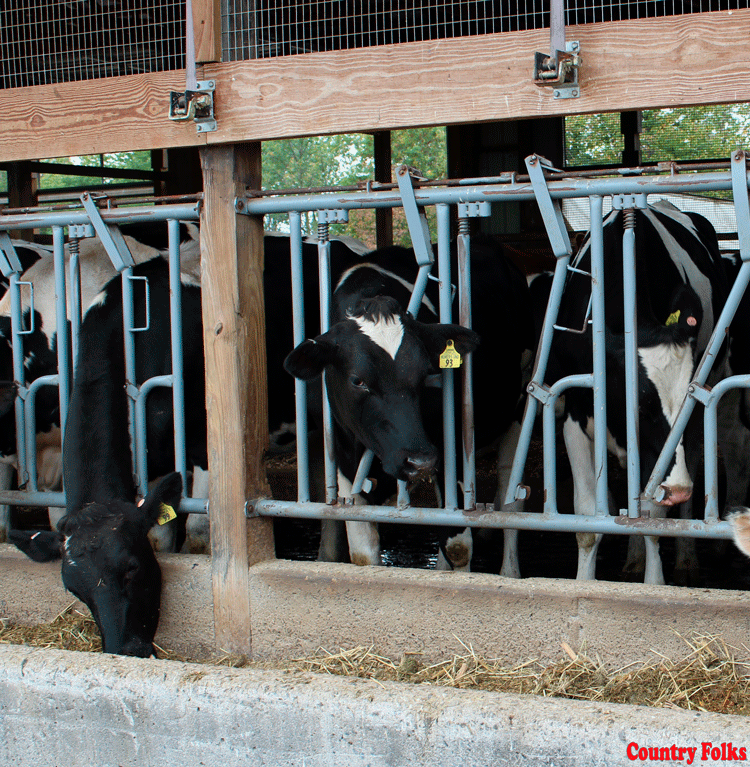
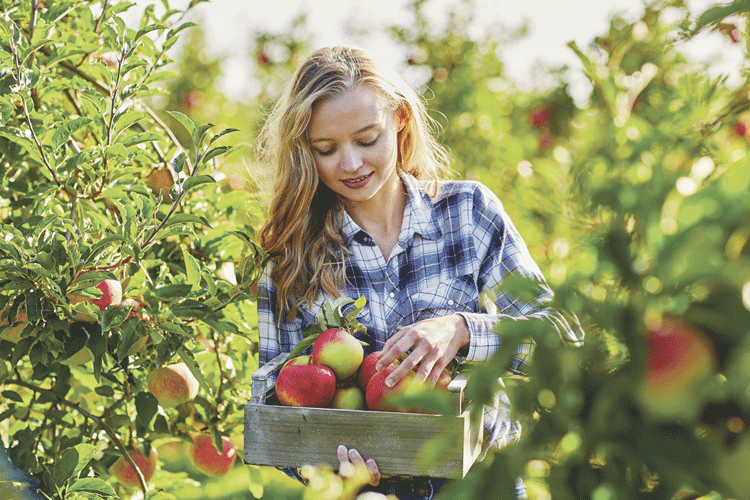
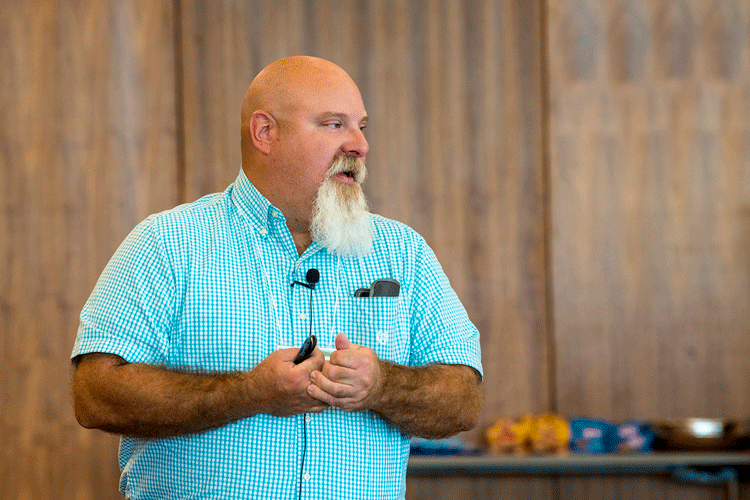

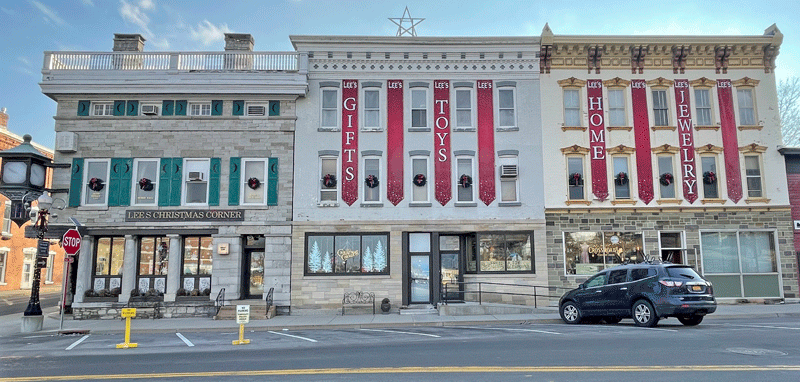

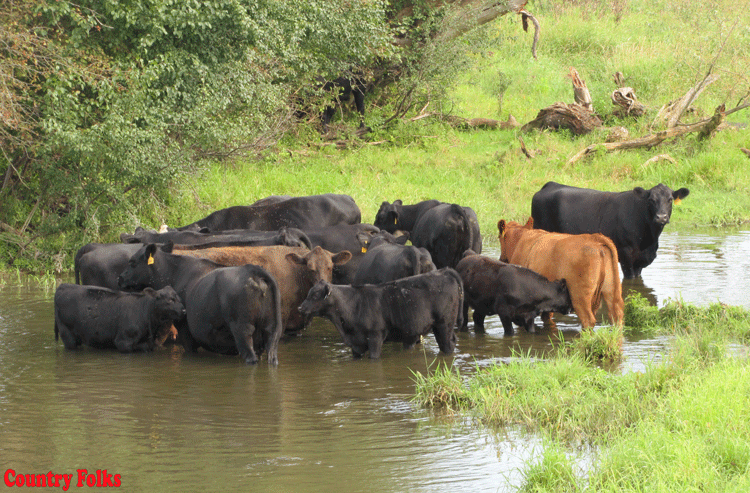


I went to the Earth Fare store in Chattanooga, Tennessee last fall and purchased a half gallon of your milk. It was delicious. It reminded me when I was growing up in East Tennessee when Mr. Smith brought quarts of milk to my home when I was in grade school and Jr. High School. Brings back so many good memories of growing up and learning to drink milk and to this day I drink about a half gallon in about 3 days. My grandparents lived across the street and that was my second home and my grandfather went to the country to purchase milk, buttermilk and butter and to this day I can still taste it in my memory and there is nothing like it today with all the processed milk and it is almost non-existent to get real creamery butter with the exception of the Amish producing it. I could write more but I don’t want it to be redundant and I just wanted to express my appreciation for the simple things in life like good milk, buttermilk and butter. Thanks for having this space to send my regards.
I have not been able to find information about whether your cows are pastured or spend all/most of their time in milking barns being fed grain instead of grazing. Could someone from Homestead Creamery please comment on this? Thank you.
Nancy, I don’t believe Homestead has been keeping an eye on this article since it was published in July. Have you tried reaching them through their Facebook page? https://www.facebook.com/pages/Homestead-Creamery-Inc/152846474769734
Best of luck finding the information you are looking for!
Thank you. I will now. Better late than never. I Absolutely Love their milk!
Sorry that we couldn’t respond to your comment as we have not looked at this blog before at Homestead creamery our cows are placed on pasture when weather permits most of the time our cows like to stay inside during the summer months because we have fans and sprinklers. When they are indoors the relieve a balanced ration containing mostly forage or corn and small grain plants chopped into pieces and entitled feel free to contact us by phone
I thinks it’s just wonderful back to glass to makes it just prefect : )
Dear Sirs
I bought what I thought was a quart of ” Half and Half ” on
Saturday Jan. 31 at a Kroger store in Cumming, GA.
The bottle was behind a store label listing the product
as half & half. The bottle it self had a special price tag
on the lid that was a bit wrinkled but the special price
was very clear. This being a product I had not seen befor
made me want to give it a try. This morning when I opened the
bottel and took a sip I was surprised to taste Egg Nog.
I have looked over the four sides of the bottel and found
nothing to indicate that the content is Egg Nog. I think
there should be some way to label the content a little
better. The egg nog is good, but it doesn’t go well
In my coffee. Just my thoughts
Thank You
I am sorry to hear that you did not get the right product thank you for your suggestion but due to the fact that we reuse our bottles we cannot label the glass although the cap should contain the product name
Do you sell old fashioned butter? I would love some.
We do
Glass bottles are REUSABLE, which is better than recyclable. Glass is not recycled in Franklin County.
I just recently found your dairy products at kroger, i am so thrilled, I have wised for milk in a glass container for yrs, i even bought some glass bottles to pour my milk into because i think it stays colder and keeps better in glass, I remember getting milk delivered to our house when I was a little girl, oh how I wish for those days again, I grew up in Williimsburg Va, I live in kingsport Tn now. Thank you thank you for milk in a old fasion bottle again, I love it,
pat
I too remember milk being delivered in glass, yours is awesome.
I love your custard also. My mother use to make this at Christmas and when I was sick. How much sugar is in yours?
We have been buying your eggnog for several years. It is by far, the best out there. We noticed that this year, it was not as thick and creamy as it has been in the past. Did you change your recipe?
In addition to being in glass, you don’t get leaching plastic. I was a part of the Jacob’s farm in Burnt Chimney and I absolutely love this part of Virginia. Honest hard working people still exist here and I wouldn’t trade that for any amount of money in this world.
I just found this milk and its great
Growing up I always hated milk. As a child I said it tasted dirty. Now that I’m many, many years older I decided to try grass fed cows milk. I was told it had a different taste. I went to Earth Fare and tried their two (2) different brands of grass fed milk. Both had distinctive flavors. I tried both and loved Homestead creamery’s milk. For the first time I love milk! Not only did I love your milk, but I actually loved whole milk for the first time in my life. I will only drink your milk lightly pasteurized whole milk. I have told many people about it. BTW, I just tried your new Coffee milk. I LOVE it!!! Tastes like coffee ice cream, but in liquid form.
First noticed your variety of milk at Kroger, on Earl Core Road in Morgantown,WV. I live in nortern Preston County,WV, but shop once a month in Morgantown. I always buy a good selecton of Homestead Creamery milk ( especially buttermilk). I use it to make buckwheatcakes through the cold winter months.because I use your buttermilk I’ve noticed the cakes taste just like my Grandma used to make when I was a child I will be 73 this August. Thank you for your great milk.